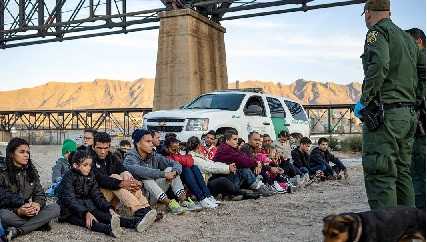
TORONTO (AP) — Canada’s Supreme Court upheld Friday an immigration agreement between the United States and Canada that says asylum seekers must apply in the first country they arrive in.
The 2002 Safe Third Country Agreement between the U.S. and Canada says migrants who go to an official Canadian crossing are returned to the U.S. and told to apply there.
The high court deemed the pact between Canada and the United States to control the flow of asylum seekers across the shared border to be constitutional and that it could not be said that the American detention regime is fundamentally unfair.
The Canadian Council for Refugees challenged the constitutionality of the 2002 agreement on behalf of a number of applicants including a Muslim woman from Ethiopia who was detained after her attempt to enter Canada from the U.S.
The court said the record does not support the conclusion that the American detention regime is fundamentally unfair.
Lawyers had asked the top court to declare that the legislation underpinning the pact violates the right to life, liberty and security of the person, saying the U.S. is not actually safe for many asylum seekers.
Those who reach Canadian soil somewhere other than a port of entry — like the center near Roxham Road — were allowed to stay and request protection until an additional agreement announced in March. That agreement closed a loophole that had allowed thousands of asylum-seeking immigrants to move between the two countries along a back road linking New York state to the Canadian province of Quebec. The ruling preserves the closing of that loophole as well.
So many migrants since early 2017 have walked into Canada on Roxham Road outside Champlain, New York, that the Royal Canadian Mounted Police staffed a reception center to process them, less than five miles (8 kilometers) from the official border crossing.
But the recently enacted policy says that asylum seekers without U.S. or Canadian citizenship who are caught within 14 days of crossing anywhere along the 3,145-mile (5,061-kilometer) border will be sent back. That includes people walking on Roxham Road.
The March agreement reached by U.S. President Joe Biden and Canadian Prime came as the U.S. Border Patrol responded to a steep increase in illegal southbound crossings along the wide-open Canadian border.
The number of illegal border crossers into the U.S. from Canada is tiny compared with those entering the country illegally from Mexico, but there have been fatalities of people seeking to cross on the Canadian side of the border.




